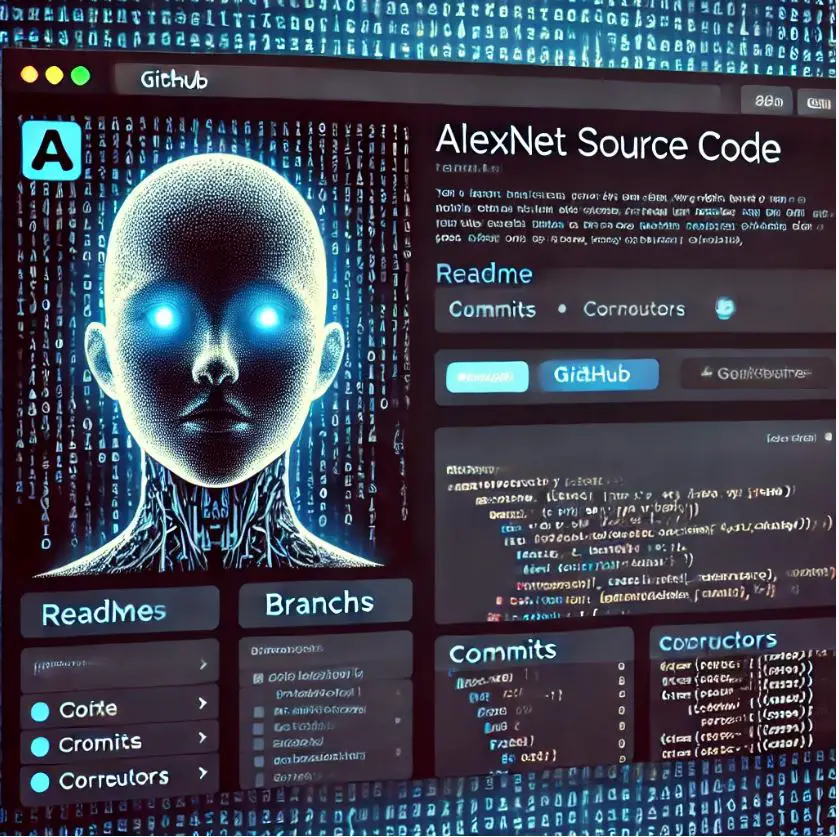
In a move that has excited the artificial intelligence community, the source code for AlexNet—a pioneering neural network architecture from 2012—has been released on GitHub. This release offers unprecedented insights into the early days of deep learning and provides both researchers and enthusiasts with a valuable resource for understanding the evolution of modern AI.
A Glimpse into AI History
AlexNet revolutionized the field of computer vision when it won the ImageNet competition in 2012, drastically outperforming previous models and demonstrating the potential of deep convolutional neural networks. By publicly releasing the source code, the developers behind AlexNet have allowed a new generation of AI practitioners to explore the technical details that laid the groundwork for today’s advanced neural network architectures. This historic code offers a window into the challenges and breakthroughs of early deep learning research, highlighting the rapid progress that has led to current innovations.
Technical Significance
The AlexNet architecture was groundbreaking for its time, utilizing techniques such as dropout, ReLU activation functions, and data augmentation to achieve superior performance on image recognition tasks. With the source code now accessible on GitHub, users can examine these foundational components and learn how they were implemented in practice. This transparency is expected to foster a deeper understanding of the algorithmic strategies that continue to influence modern deep learning frameworks. Moreover, developers and educators can use AlexNet as a case study in courses and workshops, bridging the gap between theoretical knowledge and practical application.
Community Impact and Open-Source Benefits
The release of AlexNet’s source code is expected to stimulate renewed interest in the history and development of neural networks. Open-source enthusiasts have long championed the benefits of code sharing, as it democratizes access to knowledge and accelerates innovation. By making AlexNet’s code available, the community can experiment with modifications, benchmark new algorithms against this classic model, and even integrate elements of its architecture into contemporary projects. This collaborative environment is likely to lead to fresh insights and creative adaptations, potentially inspiring new research directions.
Educational and Research Opportunities
For educators and students alike, the availability of AlexNet’s source code is a boon. It provides a practical example of how early neural network architectures were structured and trained, complementing academic curricula that often focus on more modern models. Researchers can revisit the code to better understand the design decisions made over a decade ago, comparing them with current best practices. This historical perspective not only enriches the educational experience but also encourages critical thinking about how far the field has come—and where it might head in the future.
Looking Forward: A Catalyst for Innovation
The release of the AlexNet source code is more than just a nostalgic look back at the past; it is a catalyst for future innovation. By demystifying the inner workings of a model that once defined the state-of-the-art, this release may lead to improvements in current techniques or inspire new approaches that blend classic ideas with cutting-edge technology. As the AI community continues to push the boundaries of what is possible, revisiting foundational models like AlexNet can provide valuable lessons and spark new lines of inquiry.
In conclusion, the release of AlexNet’s source code on GitHub marks a significant moment for the AI community. It not only offers a historical snapshot of deep learning’s early days but also serves as an educational tool and a potential springboard for future breakthroughs. As researchers and enthusiasts dive into the code, the legacy of AlexNet is set to inspire the next wave of AI innovations.
